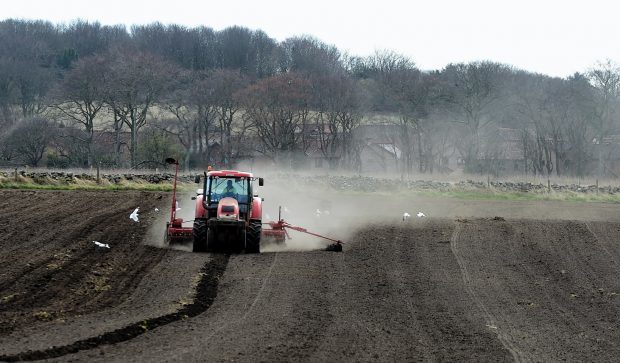Almost 60% of Scottish farmers earned less than the legal minimum agricultural wage in 2015-16.
According to the latest figures from the Government’s Chief Statistician, farm business income (FBI) spiralled through the floor to a new five-year low of just £12,600 in 2015-16.
The figures, based on the annual audits of 500 commercial farms, show that returns for farmer labour are estimated to have decreased by 48% from the previous year, and in the five years from 2010-11, there was a 75% fall in incomes in real terms.
Dairy farms were worst hit, with the statistics showing FBI down by 97%, largely due to the drop in milk prices from an average 30p a litre in 2014-15 to 21p a litre in 2015-16.
The FBI for mixed farms was down 81%, while general cropping farms had the highest average FBI in 2015-16, at £24,100. The average value of all grants and subsidies in 2015-16 was £38,100, a fall of 6% on the previous year.
The bleak figures are in stark contrast to booming profits in the food and drink sector, a fact not lost on the farmers’ union which immediately called on Government to address the imbalance.
NFU Scotland’s policy director, Jonnie Hall said the facts now backed up the anecdotal comments around how difficult it has been for farmers to make a profit in recent years.
“The viability, let alone profitability, of every Scottish farming business relies on three cogs working together – costs, markets and support,” he said.
“Given the deterioration in farm incomes, the evidence is now clear that no part is currently working for farmers or crofters. Whether producing livestock, crops, milk, poultry, pigs, fruit or veg, farmers and crofters continue to face rising input and compliance costs, declining market returns and an erosion of support payments that are conspiring to threaten the very existence of many.”
Mr Hall said the figures highlighted the need to drive down costs, ensure a fairer share of the margins in the supply chain to the primary producer, and for governments to commit to ongoing support targeted at active farm businesses.
He added: “As we enter a period of even greater uncertainty, with the potential to further undermine confidence, it is essential that producers are given unequivocal signals that new trading deals and support arrangements will put the prosperity of farming businesses top of the agenda.”
